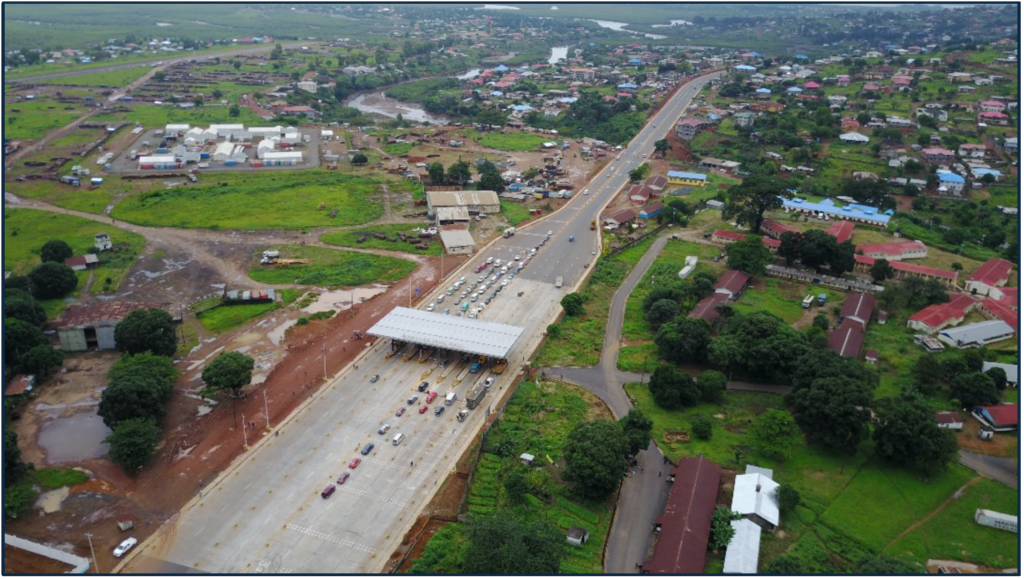In a significant milestone for infrastructure development in Sierra Leone, the Wellington-Masiaka Highway has emerged as the key that opens the gate of the PPP (Public-Private Partnership) model in the country. This toll road project has not only bolstered economic and social connectivity between urban and rural areas but has also paved the way for enterprises to actively participate in Sierra Leone’s infrastructure construction sector through the PPP model.
The successful implementation and operation of the 62-kilometre Wellington-Masiaka Highway marks a turning point in the economic and trade cooperation between China and Sierra Leone. The highway has vastly improved the condition of Sierra Leone’s main road network, alleviating traffic congestion, enhancing road safety, and fostering cultural exchange and economic connectivity. The project’s demonstration effects have attracted investments, generated employment opportunities, and catalyzed economic growth in the region.
One of the most notable impacts of the Wellington-Masiaka Highway is the drastic reduction in travel time between key destinations such as Freetown, Masiaka, Bo, Kenema, and Makeni. Before the construction of the highway, commuters faced long hours of travel, with journeys from Wellington to Waterloo stretching from 2 to 3 hours. However, post-completion, these travel times have significantly decreased, with the journey from Wellington to Masiaka now taking around 45 minutes, and to Bo, a mere 3 hours. This remarkable time-saving effect has not only enhanced transportation efficiency but has also boosted the frequency of transportation services along the corridor.
The highway’s impact on road safety cannot be understated. With specially designated lanes for different types of vehicles and the elimination of head-on collisions, the Wellington-Masiaka Highway has witnessed a substantial decrease in the number of traffic accidents. This has not only saved lives, but has also provided road users with a safe, convenient, and efficient transportation experience, contributing to overall well-being and economic development.
Moreover, the well-maintained and standardized infrastructure of the toll road has resulted in a reduction in vehicle operating costs for commuters. By minimizing wear and tear on vehicles, reducing maintenance requirements, and extending tyre life, the highway has made transportation more accessible and affordable for individuals, families, and transportation operators in Sierra Leone. This has translated into increased mobility and economic opportunities for many, who were previously hindered by exorbitant vehicle maintenance expenses.
Aside from its functionality, the Wellington-Masiaka Highway also adds to the aesthetic appeal of Sierra Leone. The modern toll plaza facilities and scenic surroundings have enhanced the country’s image and provided a sense of pride for residents and visitors alike. The relatively low toll charges and preferential policies for residents along the route further demonstrate the project’s commitment to providing convenient and cost-effective transportation solutions for all stakeholders.
Looking forward, the success of the Wellington-Masiaka Highway serves as a beacon of hope and prosperity for current and future generations in Sierra Leone. With its long-term social and economic dividends, the project has the potential to shape the country’s trajectory towards sustainable development and progress. As a landmark initiative in infrastructure construction, the highway symbolizes the positive impact of public-private partnerships in driving economic growth and improving the quality of life for all citizens.
The Wellington-Masiaka Highway stands as a testament to the transformative power of infrastructure development in fostering economic prosperity and social connectivity. By supporting and protecting initiatives like this toll road project, Sierra Leone can continue to attract investments, create opportunities, and build a foundation for a brighter future for its people and economy.
